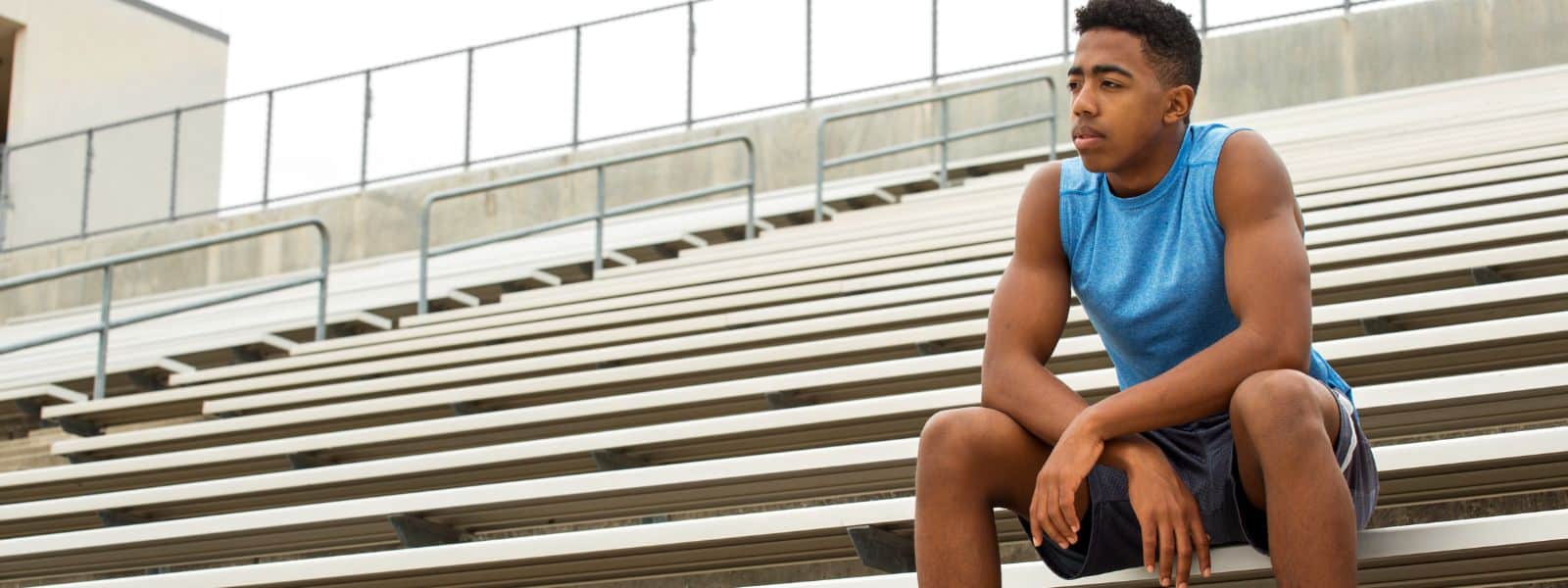Addressing the Cognitive Effects of Concussions in Students
Ask a parent about post-concussion recovery protocols and most will probably mention complete physical and mental rest until symptoms resolve. It makes sense, considering those were best practices—as stated by medical professionals for years. However, new research on the cognitive effects of concussions and best practices for recovery may be changing.
Research published in a February 2024 issue of the British Journal for Sports Medicine found that in adolescents with a concussion, more moderate- to high-intensity cognitive activity is associated with faster symptom resolution. In addition, the study found that a delayed return to school was associated with slower symptom resolution.
To be clear, these relationships don’t necessarily imply causality and more research—including randomized controlled trials—is needed to truly determine if exposure to early cognitive activity can promote concussion recovery in adolescents.
But if you’ve got an active kid and want to be up to date on the latest recommendations for concussion recovery, including addressing the cognitive effects of concussions, we recommend talking to your family physician and getting a cognitive skills baseline now so you’ll be prepared if the injury occurs.
What is a cognitive skills baseline?
A Brain Skills Assessment measures your cognitive skills in a “healthy” state. If your child or teen ever gets a concussion, a post-injury Brain Skills Assessment will provide new results, which you can compare against the baseline.
The test only takes about an hour and it can be done at your nearest personal brain training center.
During the assessment, your child or teen will complete a series of activities that measure cognitive skills. Because each activity is designed to test a specific skill or set of skills, the brain’s core learning and thinking skills can be measured independent of one another.
The Brain Skills Assessment measures seven core cognitive skills, which work together to allow our brains to acquire new information, accomplish basic tasks, solve complex problems, and process the world around us. When these skills are strong, learning is faster and easier in ANY subject, whether in school, work, sports, or life in general! These skills include:
- Attention: How well the brain concentrates on activities and tasks
- Processing Speed: How quickly the brain processes new information
- Working Memory: How well the brain retains short-term information
- Long-term Memory: How easily the brain retains important long-term information
- Auditory Processing: How well the brain processes, analyzes, and imagines sounds
- Visual Processing: How well the brain processes, analyzes, and imagines images
- Logic & Reasoning: How well the brain reasons, forms ideas, and solves problems
How do you boost cognitive skills after a concussion?
Beyond just providing a cognitive skills baseline in case they ever experience a concussion, a Brain Skills Assessment can help you identify the root cause of any learning or thinking struggles your child may be experiencing. In fact, more than 80% of learning problems are due to one or more underperforming cognitive skills.
By mapping your child’s unique cognitive profile and identifying which cognitive skills have the most room for improvement (either pre- or post-concussion), an experienced cognitive skills expert can create an individualized brain training plan for your child or teen that targets and trains the brain skills that need a boost.
Unlike tutoring, which delivers (or re-delivers) information to students who can benefit from reviewing class materials or receiving targeted instruction on a specific subject, cognitive skills training is designed to build stronger learning and thinking skills. Improving these brain skills addresses the root cause of challenges related to understanding, processing, and remembering what’s being learned.
So how exactly does one-on-one brain training boost cognitive skills?
Whether it’s addressing the cognitive effects of concussions or simply to make thinking, learning, reading, and remembering faster and easier, brain training leverages the power of neuroplasticity.
This is the brain’s ability to change through growth and reorganization—by using mental exercises and fun game-like activities to train the brain and improve the way your child or teen learns and thinks. The process is akin to personal training, but instead of targeted muscle groups, brain trainers target cognitive skills.
In order to build skills quickly, personal brain trainers use the following strategies:
- Developing skills step by step so students build on earlier successes
- Increasing the difficulty of activities as students progress through the program
- Engaging multiple skills at the same time to build strong mental connections
- Providing direct encouragement and feedback from a personal trainer
Whether your student has learning challenges, has experienced a concussion, or you’re just looking to create a cognitive baseline, consider scheduling a Brain Skills Assessment. The results may provide an “Aha!” moment that explains why your child struggles to think, learn, pay attention, or remember. What you do with that information is up to you, but at least you’ll have a better understanding of the strength of their core cognitive skills and can use that information to determine a plan of action.







